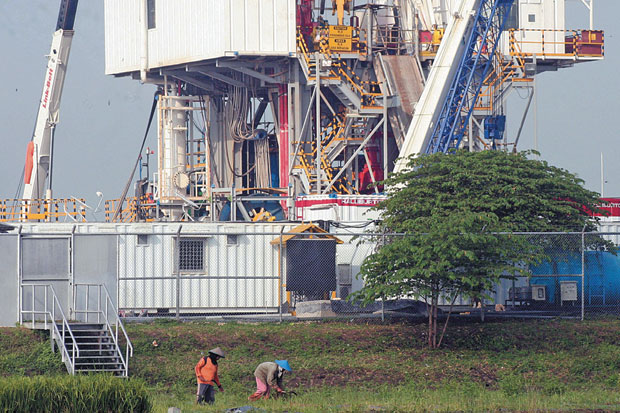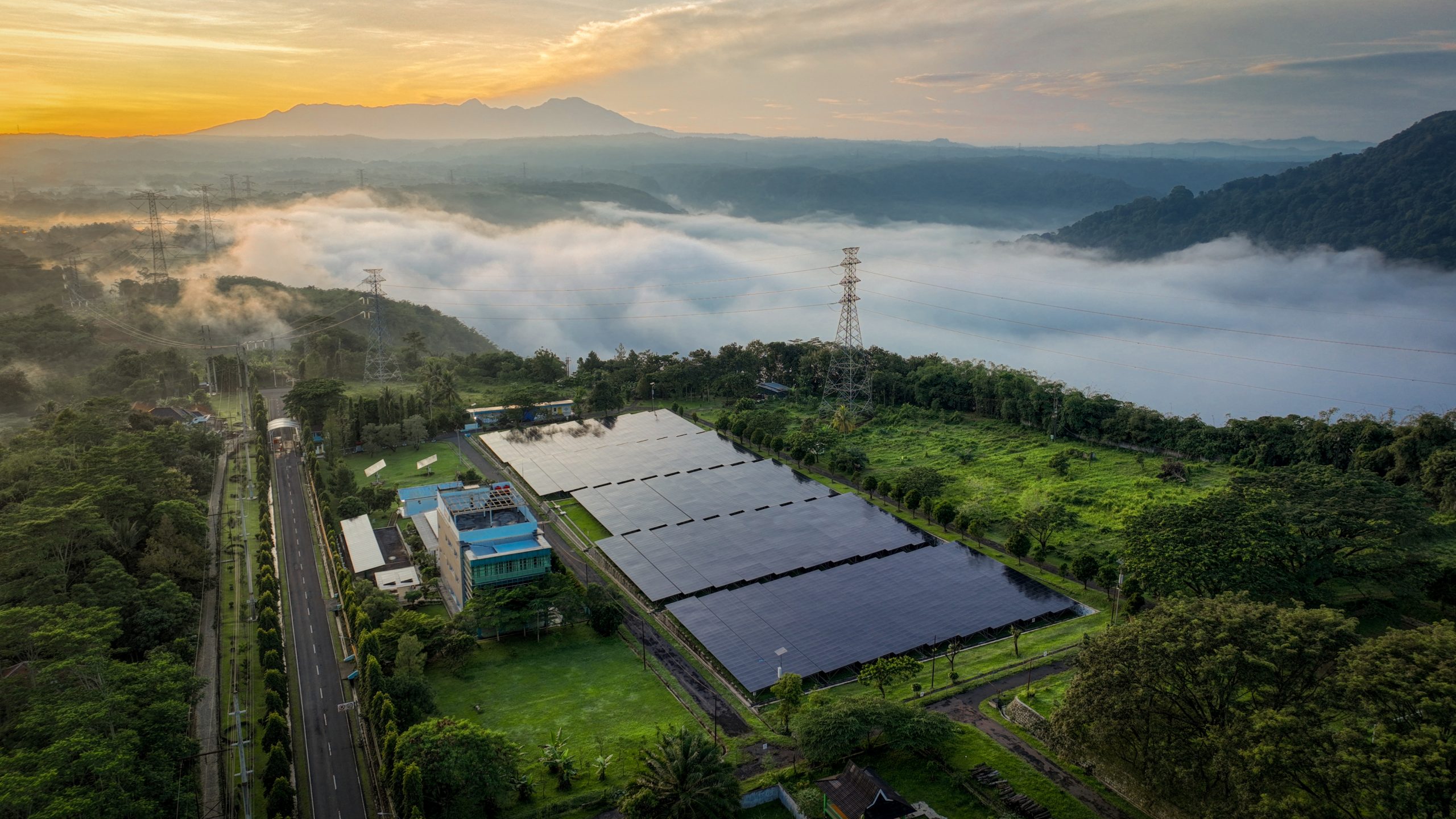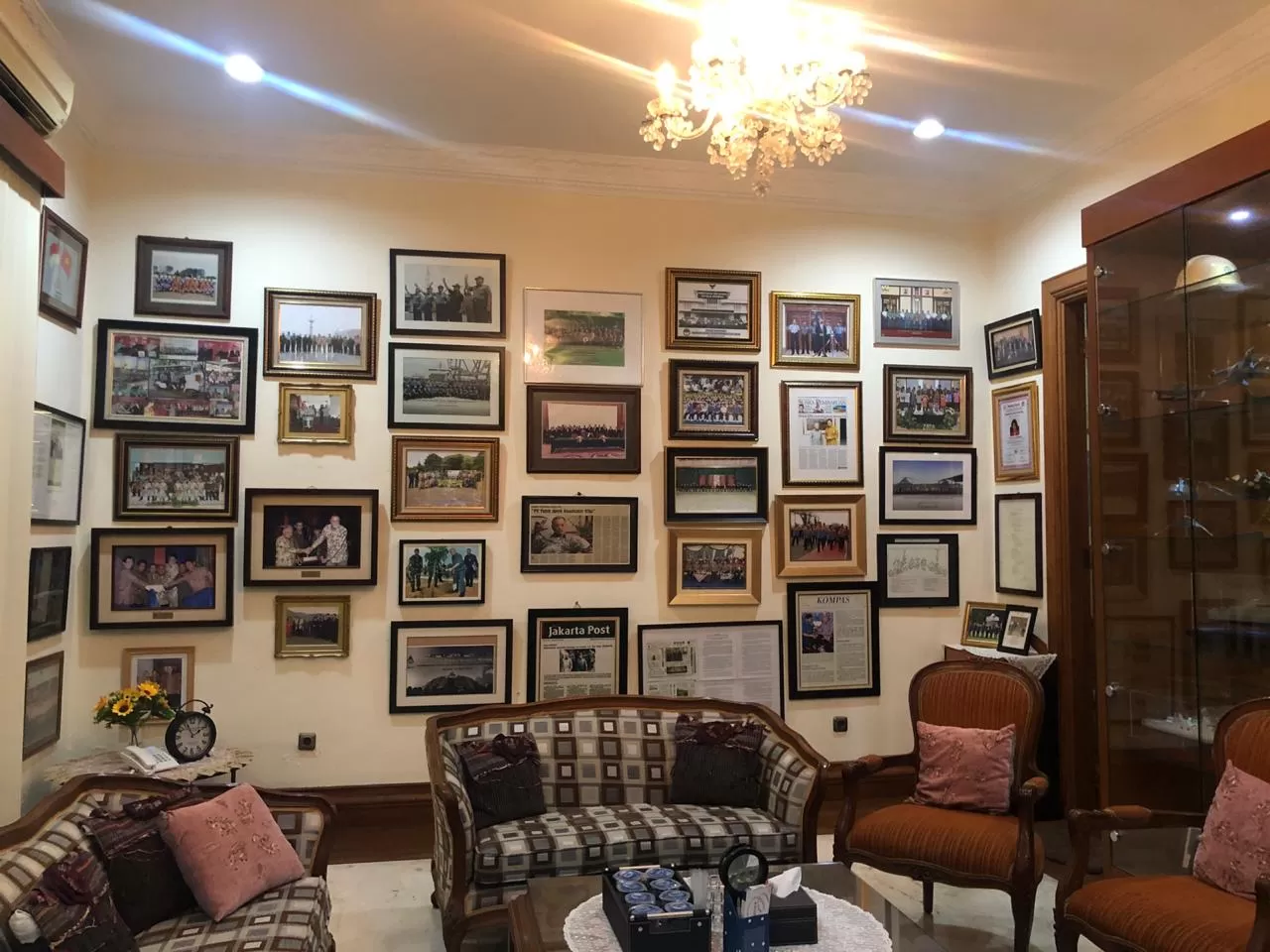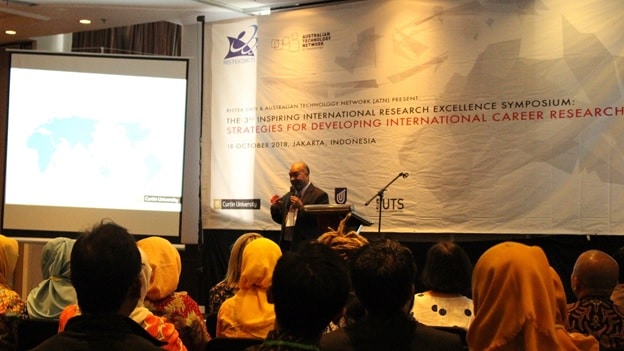
Figure 1. Prof. Kevin Fynn is explaining collaborative research with industry in Australia.
On October 18, 2018, Ministry of Research, Technology and Higher Education of the Republic of Indonesia collaborated with Australian Technology Network (ATN) presented The 3rd Inspiring International Research Excellence Symposium: Strategies for Developing International Career Researchers at Royal Kuningan Hotel, Jakarta. ATN is a network of four universities from each mainland state of Australia, namely University of Technology Sydney, RMIT University, University of South Australia, and Curtin University.
The participants of the symposium were from various universities in Indonesia. Speakers at this event were Prof. Ir. I Gede Wenten (Expert of Membrane Process Technology) from Bandung Institute of Technology, Prof. Dr. Ir. Iskandar Zulkarnaen Siregar, M.For.Sc (Expert of Conservation and Sustainable Management of Tropical Forest Genetic Resources) from Bogor Agricultural University (IPB), Prof. Pat Buckley (Expert of Healthy Futures) from University of South Australia (UniSA), Prof. Kevin Fynn (Expert of Industry and Engineering Research and Development) from Curtin University, and Dr. Samantha Grover (Expert of Environmental Chemistry) from RMIT University.
The topic of Prof. Pat Buckley presentation was Higher Education Research Metrics: Global Implications of Research Performance on opening session. She underlined four essential questions related to the subject including; (1) How research is measured and evaluated in Australia (lesson learned), (2) How the government influence and fund research, (3) The role of world rankings, and (4) How we should respond. She said that having a higher education is critical for international competitiveness and individual opportunity. Moreover, the quality and status of the education has become essential indicators for a university. The performance of a university is often measured by a rating method. However, different entities arranged different rating methods which assess different indicators. There are several indicators to measure research performance in the university which are quality of education, quality of faculty, quality of student, quality of lecturer, research output, size institution, research productivity, research impact, research excellence, publication, reputation for research, Nobel prizes & fields medals, international collaboration, and funding. The rating system could encourage a university to further develop and evaluate its performance.
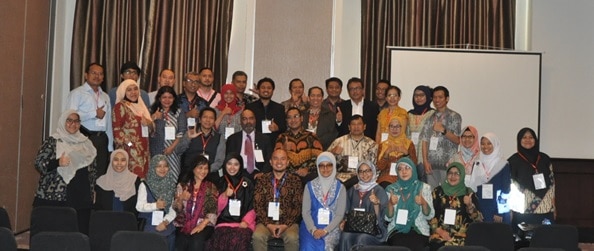
Figure 2. Photo session of participants and speakers after the event
Prof. Dr. Ir. Iskandar Zulkarnaen Siregar, M.For.Sc and Dr. Samantha Grover presentation topic were about International Research Collaborations: Funding Collaborative Research and Publishing with International Collaborators. Prof. Dr. Ir. Iskandar Zulkarnaen Siregar, M.For.Sc told his experience as the Director of International Program IPB which makes him familiar with coordination tasks on international research collaboration. Dr. Samantha Grover talked about the importance and the way of establishing a relationship with potential international collaborators, publishing, and funding collaborative research.
Prof. Kevin Fynn and Prof. I Gede Wenten presented a topic of Collaborative Research with Industry Partners: Delivering Economic, Social and Cultural Benefits to Local and Global Communities in the workshop session. Prof. Kevin Fynn delivered various strategies for commercializing research product with the topic of Innovation & Entrepreneurship: Commercialization of University Intellectual Property & Experiences Industry Engagement. Prof. I Gede Wenten highlighted the importance of patent for research output or product. His expertise in membrane technology has brought a lot of commercial patents which have been widely used in domestic and foreign industries. As a lecturer himself, he said that being a lecturer while working in the commercial area was quite challenging. He emphasized that the most important thing to overcome the challenge is to be professional. The discussion was interactive with a lot of questions came from Indonesia lecturers who face the same issue.
